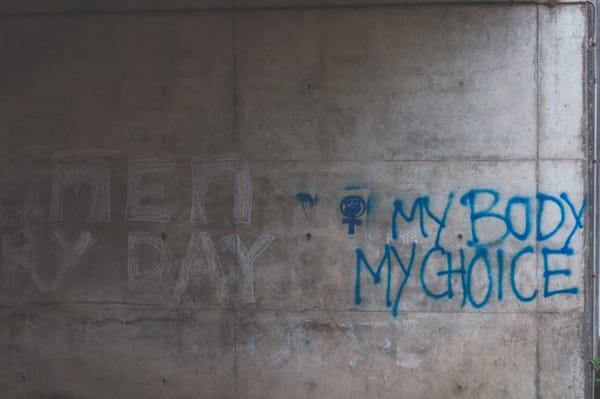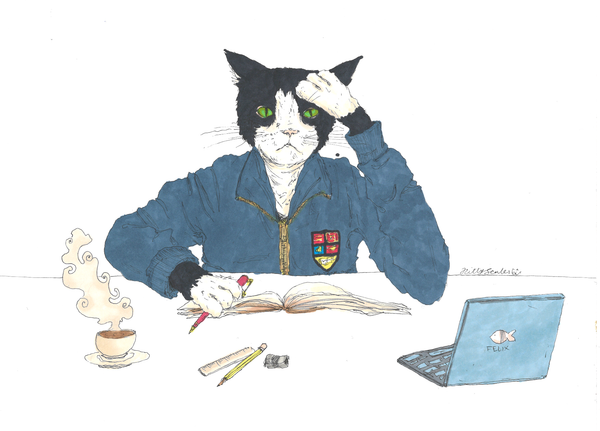Cultural appropriation should not be trivialised
BME Officer Chimdi Igwe responds to last week’s article and thinks people need to appreciate what cultural appropriation really means.

Over the past nine or so months (and, if I’m honest, much earlier than that), I’ve often found myself being thrust into conversations around topics of race, ethnicity, and identity. More than once, I’ve been asked all manner of questions or for my take on a number of issues, many of which I haven’t really cared for.
But nothing gets under my skin quite like the mention of ‘cultural appropriation’ – so much so that I have to suppress the urge to roll my eyes dramatically each time it’s uttered. Nevertheless, I couldn’t help but cringe when reading a piece published in the Comment section of Felix last week. The article was centred around the news story that broke of a young woman who was met with criticism online for wearing a traditional classical Chinese dress to her high school prom.
Though the article’s tone was meant to be satirical at best (which is giving it a lot), I felt unnecessarily vexed by the lacklustre approach to discussing the idea of cultural appropriation. Despite my general discomfort with broaching this topic when often asked about it, I decided it would be amiss to sweep this under the table without making a rebuttal of sorts.
With academic sociological concepts, the general trend has been that their definitions become diluted as they move from the realm of academia to the mass public (you could say as they get ‘appropriated’), taking on meanings which poorly reflect their definitions. One good example is the tendency to misuse the word ‘racism’ in situations where, going by its original definition, it does not necessary apply (anyone who went to a multicultural secondary school will likely have witnessed this).
Like everything to do with liberation work, cultural appropriation is about power dynamics on the societal level (I’ve put this in bold because if you take nothing else from this article, understand this). When academics talk about cultural appropriation, they are looking at how a society can embrace a culture whilst rejecting its source: the people.
“Wearing Western clothing in a Western country is assimilation, not appropriation”
Of course, culture is fluid and flows across the world – “no man is an island”, after all. We live in a European country whose national dish is apparently chicken tikka masala. But false equivalencies exist, and the article was riddled with them in all forms. I will try to break down the more pertinent ones.
Firstly, wearing Western clothing in a Western country is not appropriation, it is assimilation. Neither is undertaking a Western education (which itself greatly benefitted from Islamic scholars in areas such as mathematics). My foremothers walked around their communities completely bare-chested with the utmost confidence and with no shame (not so much anymore). Imagine the front pages of the tabloids if my grandmother did this now. Countless headlines have been published in which people have complained about Islamic faith schools – that they don’t embrace ‘Western education’ and ‘British values’ (neither are quite true).
Secondly, there is such a thing as cultural exchange. In this case, there is a mutual benefit to both cultures in question. Though I know very little about Malaysian culture, I do come from a country of over 200 ethnic groups; fashion, music and slang flow around.
Thirdly, and most importantly, we can’t ignore colonisation. Much of the conversation about appropriation tends to focus on the United States, often around Native and/or black American culture – groups of people who historically have been oppressed and suppressed in society. When a group of people have been forced to isolate their culture from the mainstream for whatever reason, can they truly be blamed for feeling angry when you try to incorporate their culture into your own whilst ignoring their grievances?
What really bothered me about the article was the dismissive way the writer approached appropriation, suggesting that talking about appropriation was somehow juvenile, and that we had “actual important things” to focus on. In any area of liberation, dismissive apathy can be more dangerous that outright oppression. As an Imperial student who has taken the time out of their day to write an article about something for which they don’t care, I’m sure the writer is capable of caring about more than one issue at a time.
I’d just like to clarify at this point that I personally didn’t care much for the debates online as to whether or not that young woman appropriated Chinese culture. The speed at which people label something as ‘appropriative’ is concerning, and many times the term is incorrectly used. That’s not an excuse to throw the baby out with the bathwater.
The line between appreciation and appropriation is thin, and it’s a real headache trying to map it. But to pretend that the latter is fiction is just being obtuse. And that’s never a good look.









